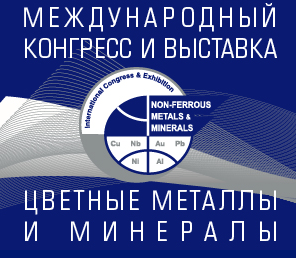CARBON NANOTUBES SYNTHESIZED FROM MONOHYDRIC ALCOHOLS FOR REINFORCEMENT OF POLYMERS
Abstract
Carbon nanotubes were synthesized from various monohydric alcohols by catalytic chemical vapor deposition in hydrogen flow at 1050-1150 °C. The possibility of reinforcing the polymer by carbon nanotubes was tested. Carbon precursors were the following monohydric alcohols: methanol, ethanol, propanol, butanol, isopropanol and isoamyl alcohol. The choice of different monoalcohols is related to the possibility of changing the C / H / O ratio, which affects the formation and characteristics of carbon nanotubes. The carbon nanotubes were characterized by scanning electron microscopy, transmission electron microscopy, Raman spectroscopy and thermogravimetric analysis. The results of the studies allowed selecting for the production of composite material the nanotubes that differ in structure, morphology, and the content of impurities. The durable thermoset epoxy resin was used as the polymer. The degree of nanotubes filling was not more than 8 % wt. The electrophysical properties of the composite material samples prepared from epoxy resin and carbon nanotubes were measured by four-point probe method. The thermal conductivity was measured by the pulsed method. According to the results obtained by scanning electron microscopy, the uniformity of impregnation with epoxy resin and the distribution of carbon nanotubes in the sample were evaluated. The most promising polymer composite materials were the samples reinforced with the carbon nanotubes obtained from ethanol and a mixture of methane and methanol. Specific electrical conductivity of the composites prepared with the ethanol-based carbon nanotubes was 2.27 · 10-1 - 4.9 · 10-2 S/m. As regards the composites based on nanotubes prepared from the methane-methanol mixture, the electrical conductivity was 7.2 · 10-3 S / m. The thermal conductivity of the composites prepared with long carbon nanotubes was 7-12 times higher than the one of those prepared with short carbon nanotubes.
Forcitation:
Karaeva A.R., Lazareva E.S., Zhukova E.A., Urvanov S.A., Mordkovich V.Z. Carbon nanotubes synthesized from monohydric alcohols for reinforcement of polymers. Izv. Vyssh. Uchebn. Zaved. Khim. Khim. Tekhnol. 2017. V. 60. N 9. P. 17-22
References
Popov V. N. Carbon nanotubes: properties and application. Materials Science and Engineering: R: Reports. 2004. V. 43. N 3. P. 61-102. DOI: 10.1016/j.mser.2003.10.001.
Karaeva A.R., Khaskov M.A., Mordkovich V.Z. et al. Longer Carbon Nanotubes by Controlled Catalytic Growth in the Presence of Water Vapor. Fullerenes, Nanotubes and Carbon Nanostructures. 2012. V. 20. N 4-7. P. 411-418. DOI: 10.1080/1536383X.2012.655229.
Lonjon A., Demont Ph., Dantras E., Lacabanne C. Electrical conductivity improvement of aeronautical carbon fiber reinforced polyepoxy composites by insertion of carbon nanotubes. J. Non-Crystalline Solids. 2012. V. 358. N 15. P. 1859-1862. DOI: 10.1016/j.jnoncrysol.2012.05.038.
Srivastava V. K. Effect of CNTs on the Wear and Friction Performance of Carbon Fibre Woven Fabric Reinforced Epoxy Resin Composites. Int. J. of Composite Materials. 2016. V. 6. N 4. P. 95-99. DOI: 10.5923/j.cmaterials.20160604.02.
Sabet M., Soleimani H. Mechanical and electrical properties of low density polyethylene filled with carbon nanotubes. IOP Confer-ence Series: Materials Science and Engineering. 2014. V. 64. P. 012001. Doi: 10.1088/1757-899X/64/1/012001.
Колмаков А.Г., Баринов С.М. Основы технологий и применение наноматериалов. M: Физматлит. 2012. 208 с.
Kolmakov A.G., Barinov S.M. Bases of technology and application of nano materials M: Fizmatlit. 2012. 208 p.















